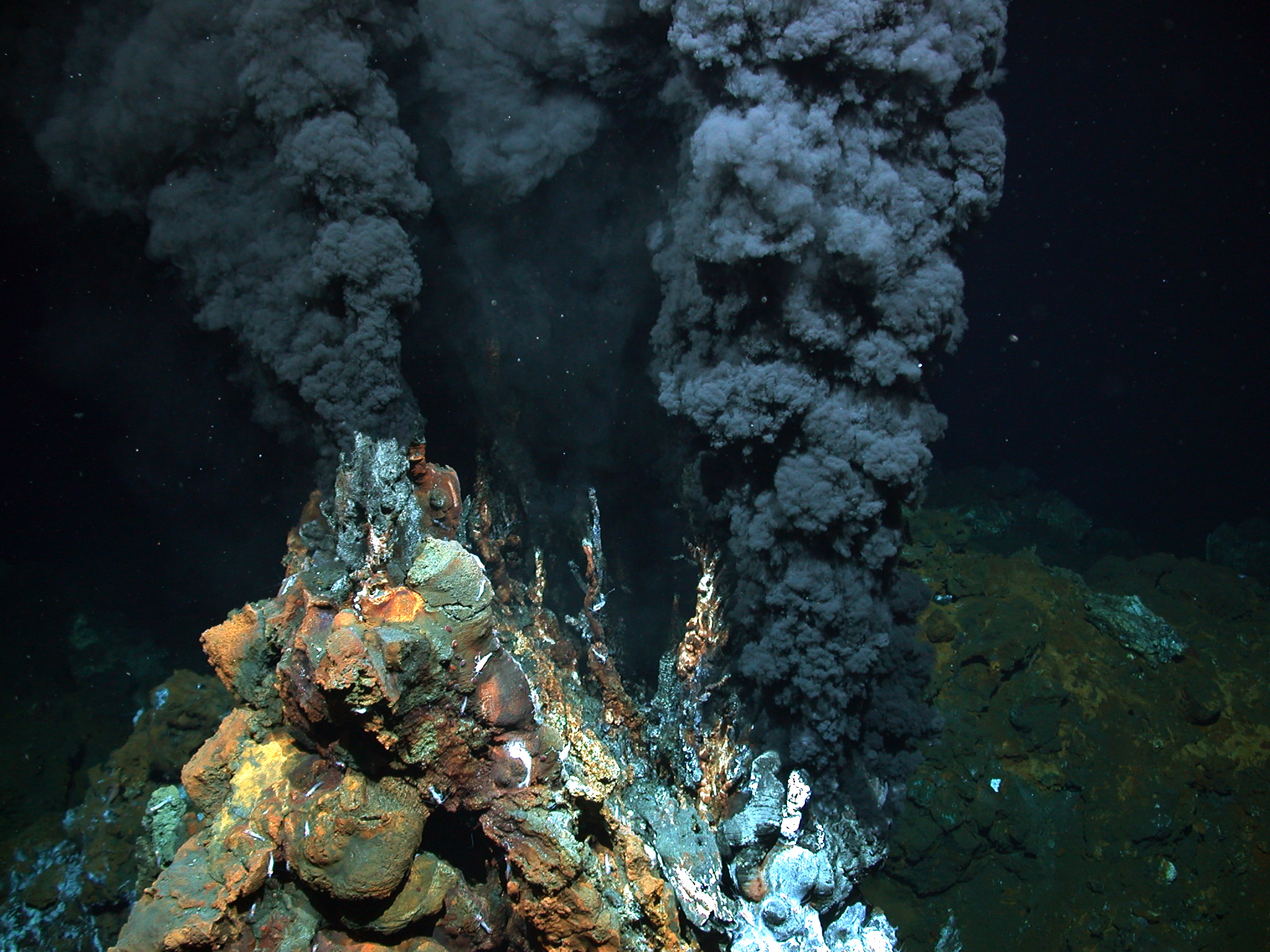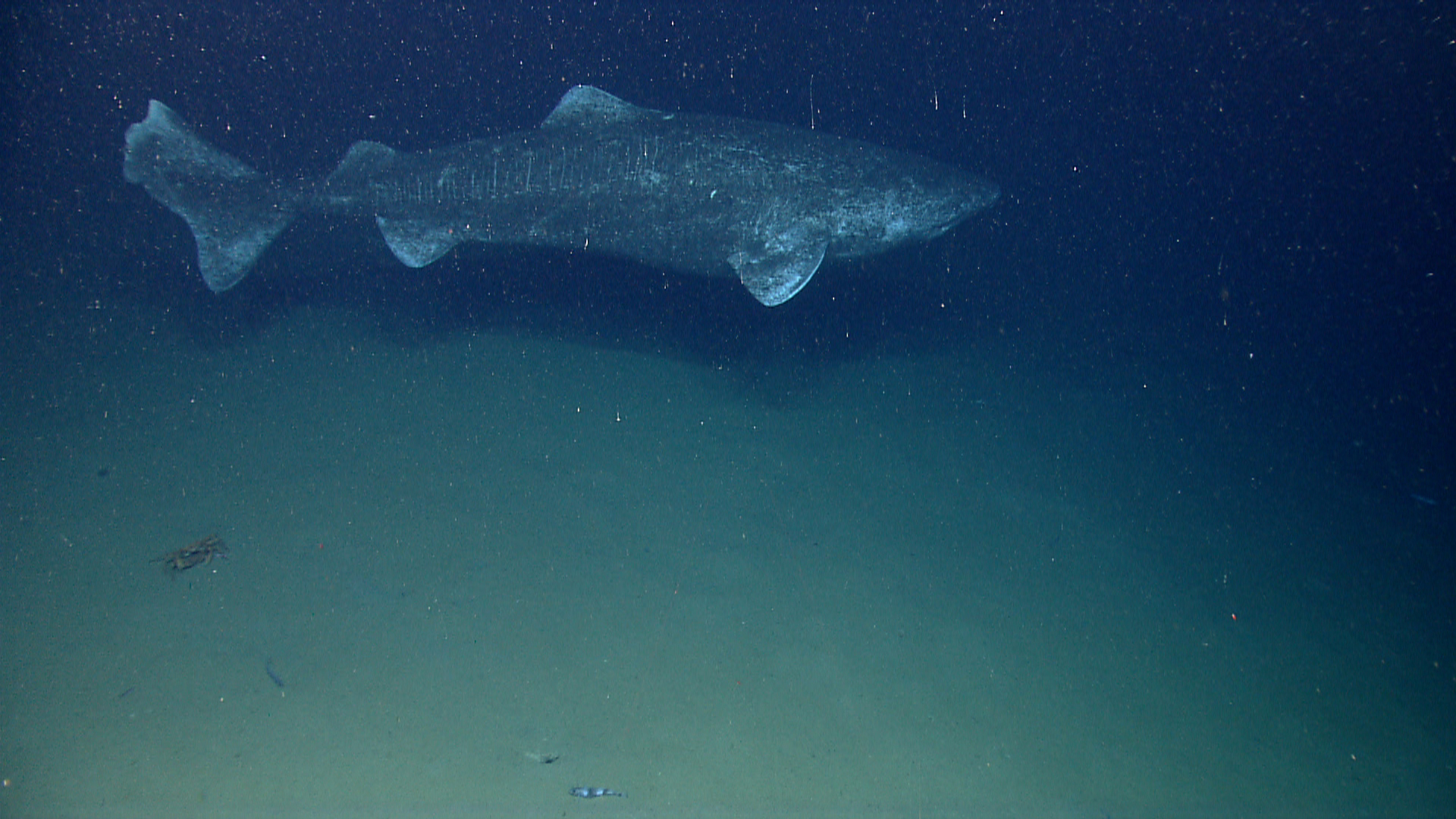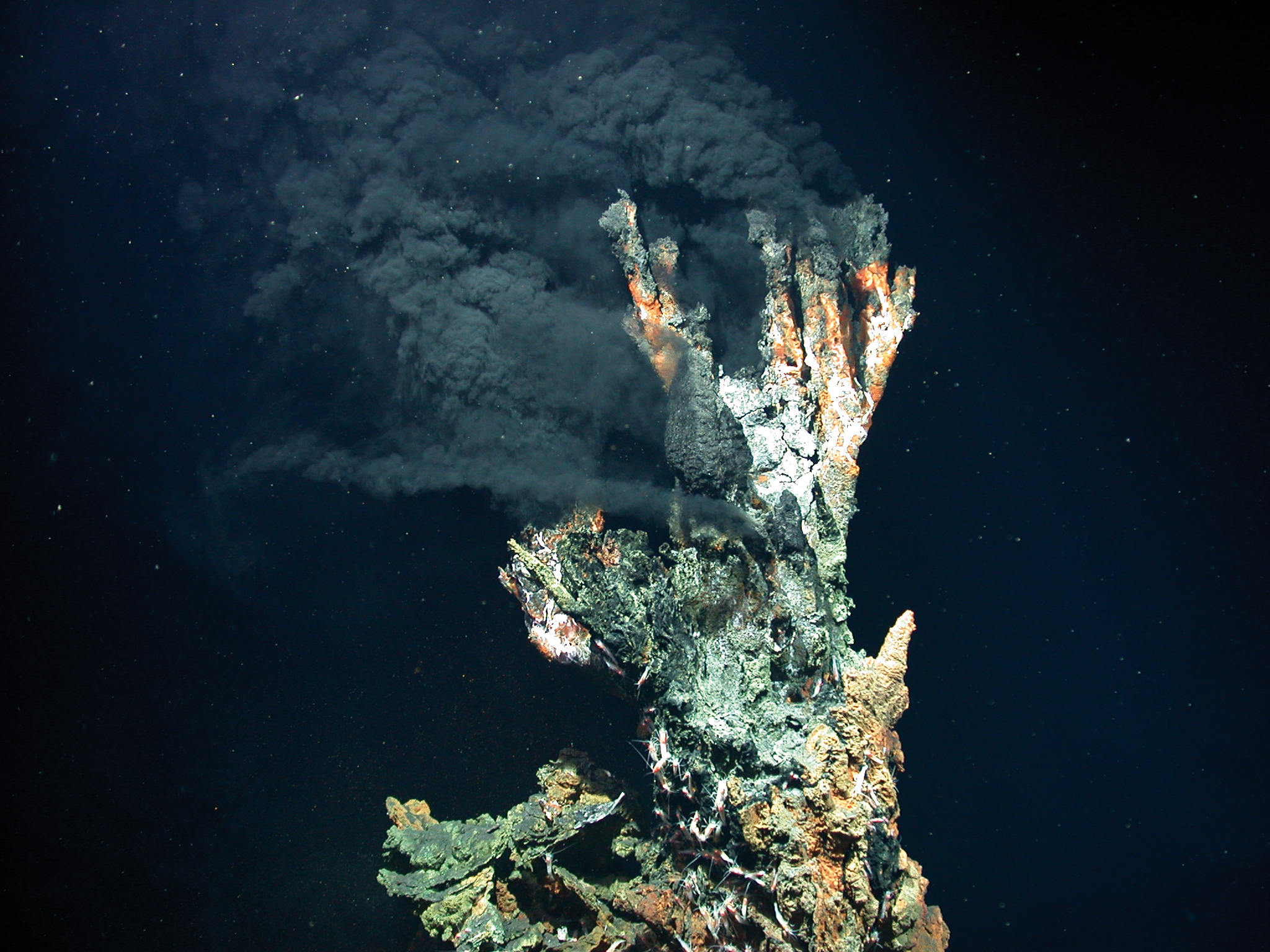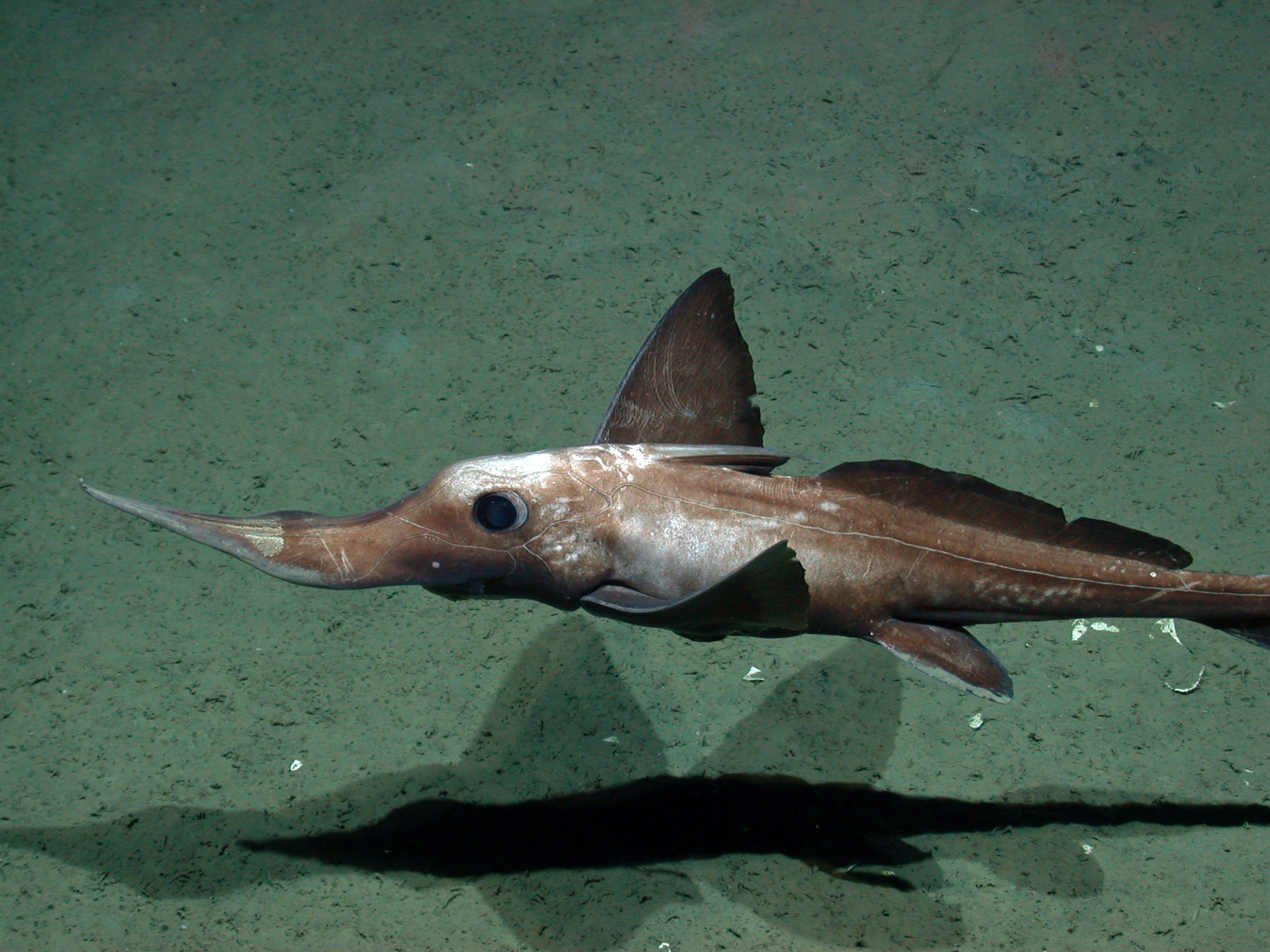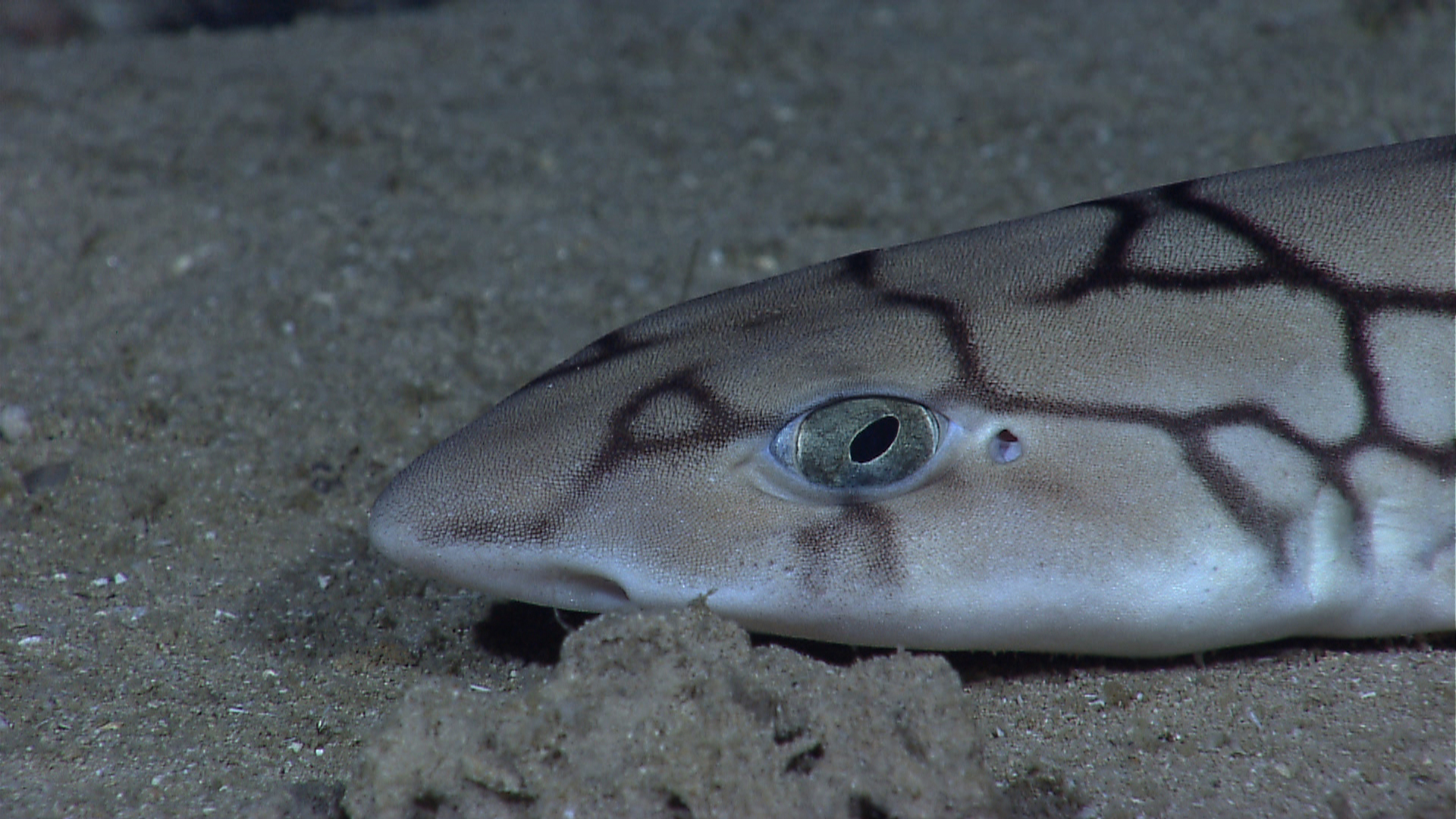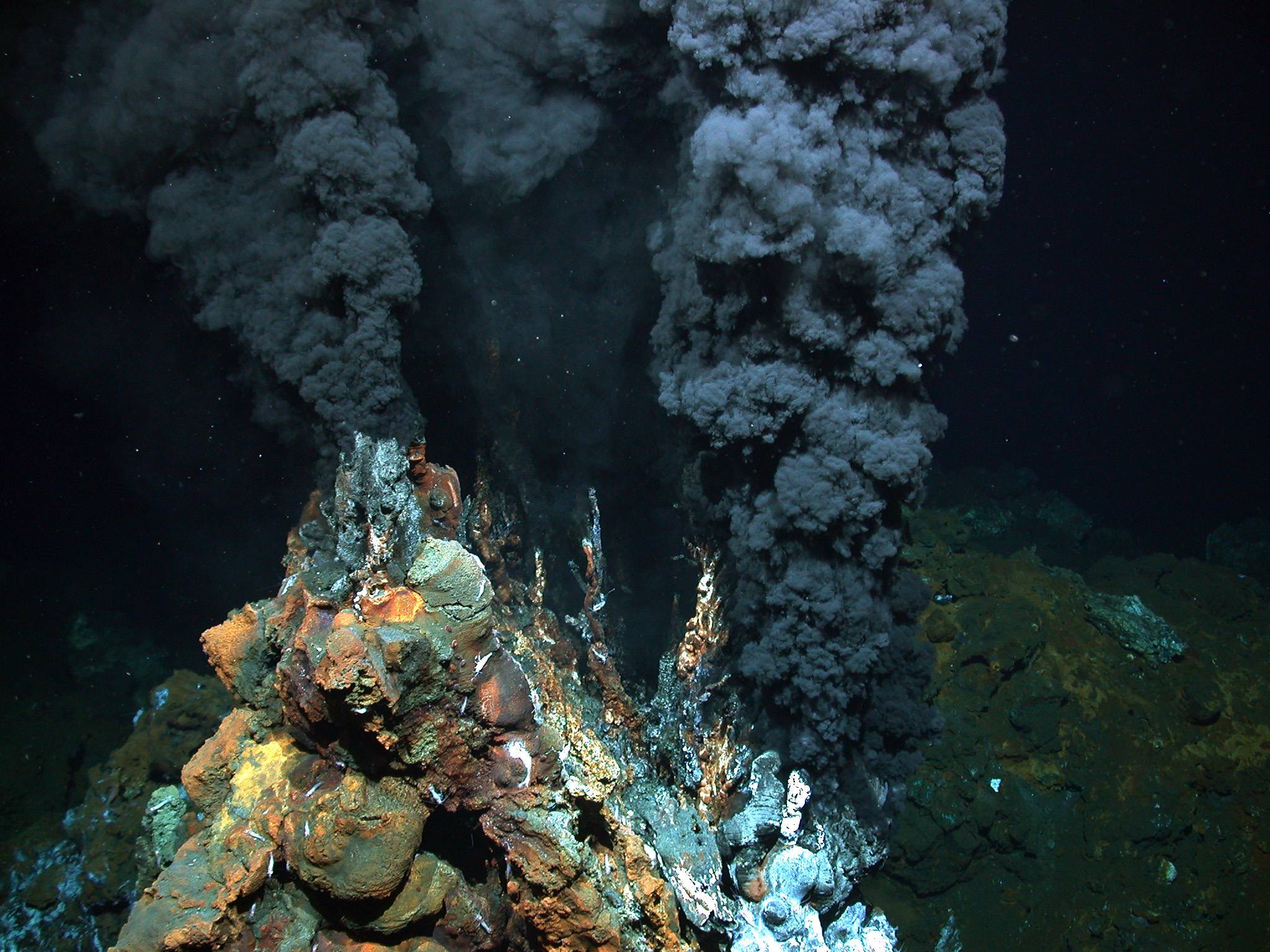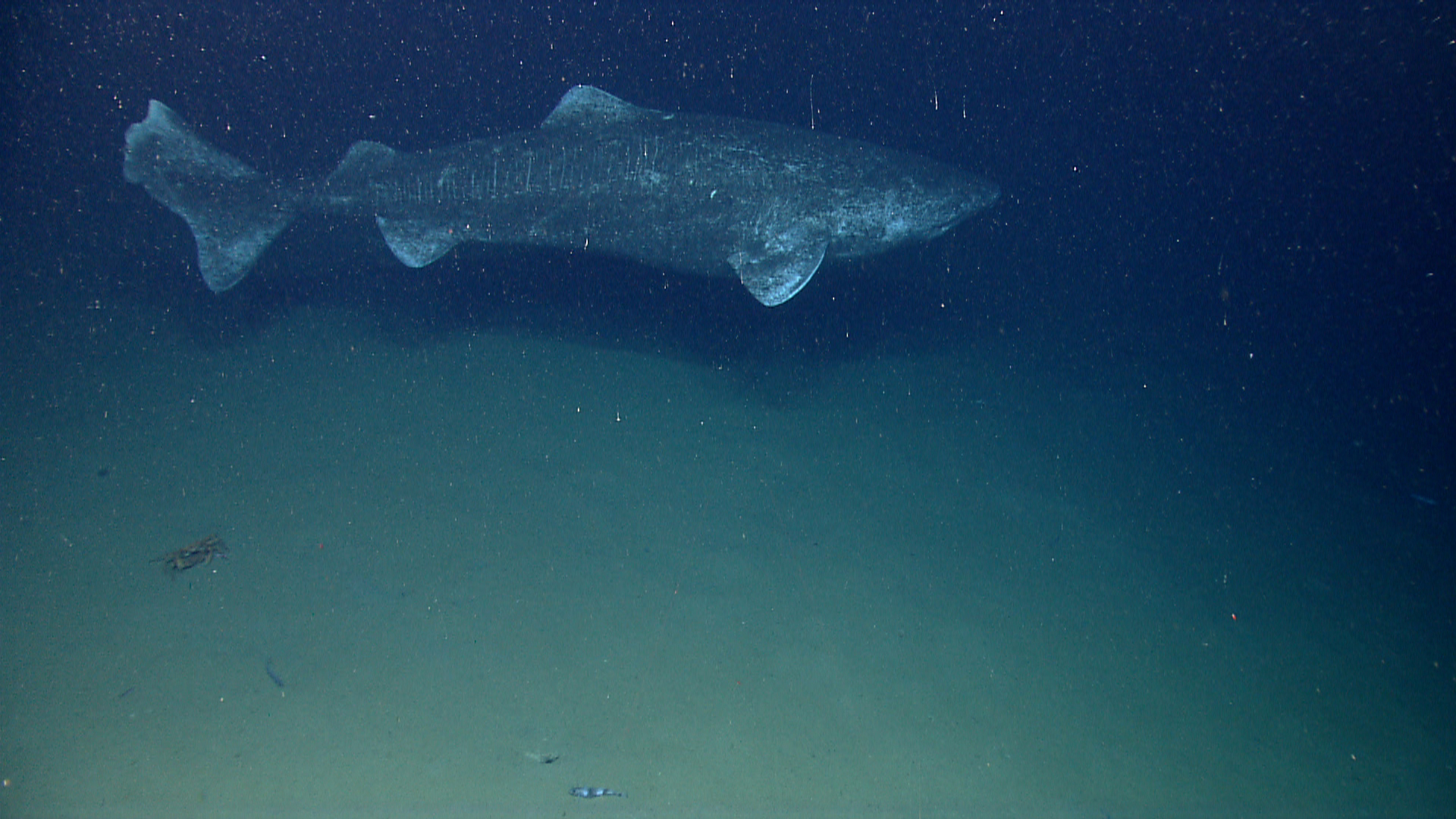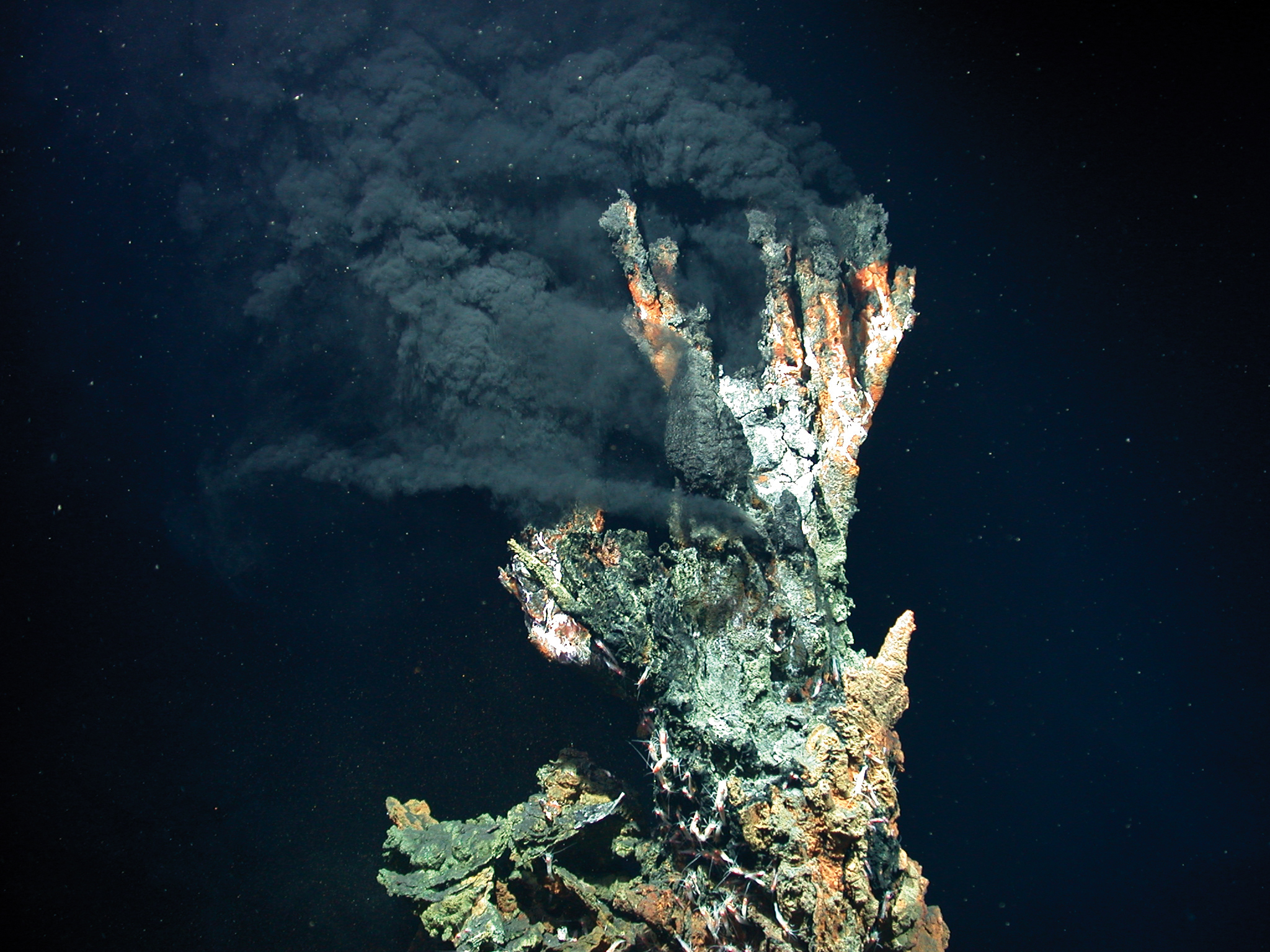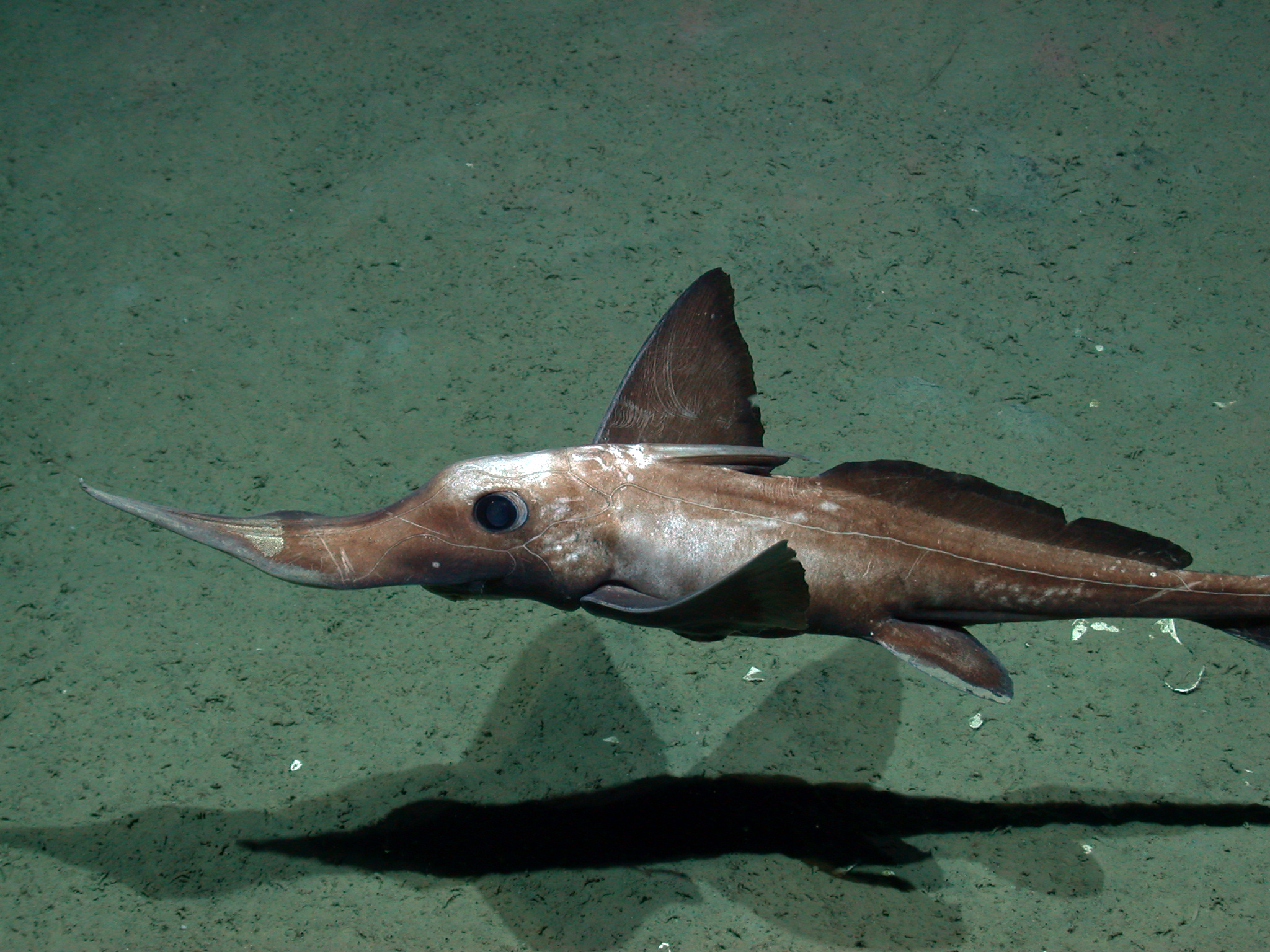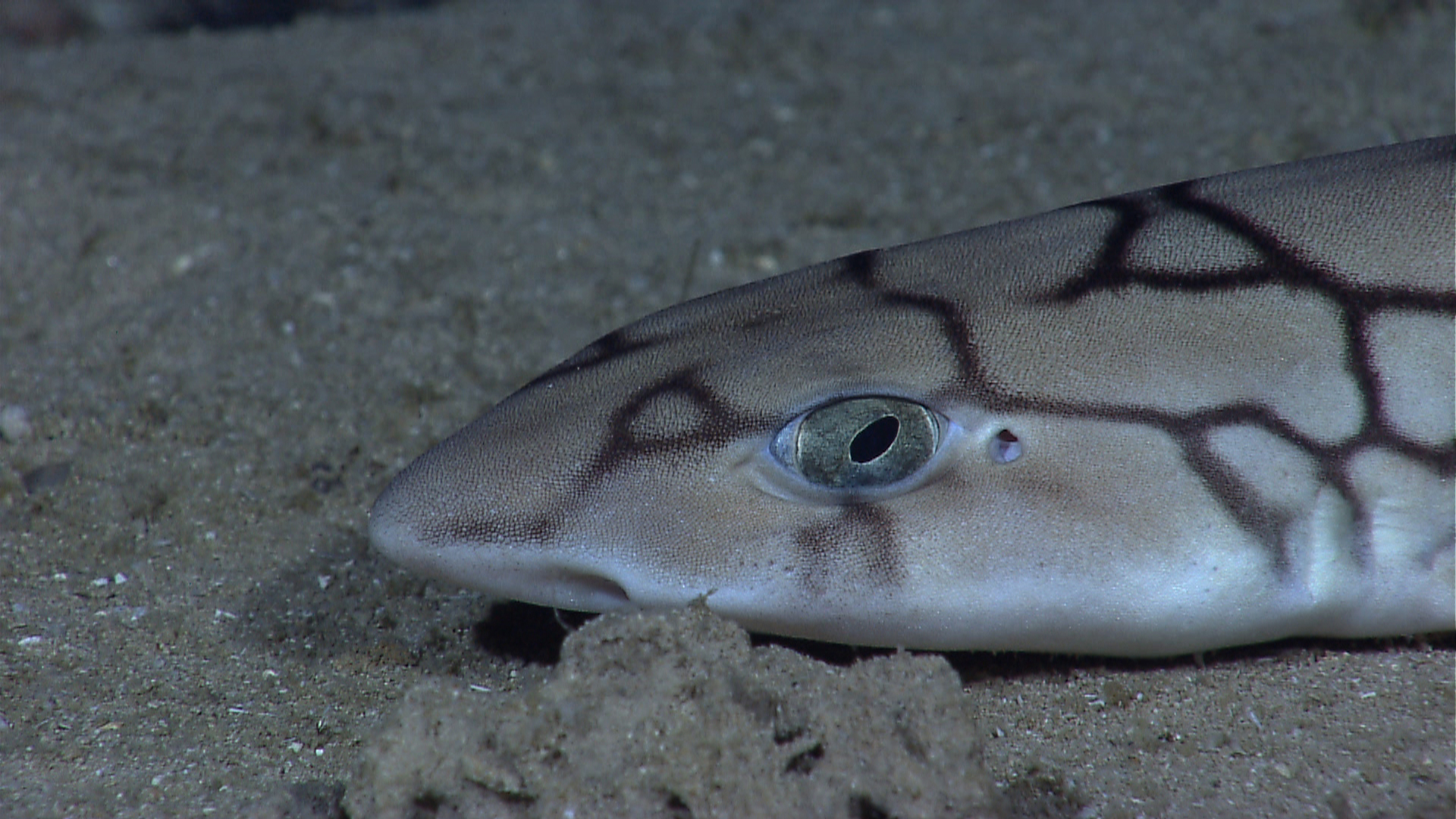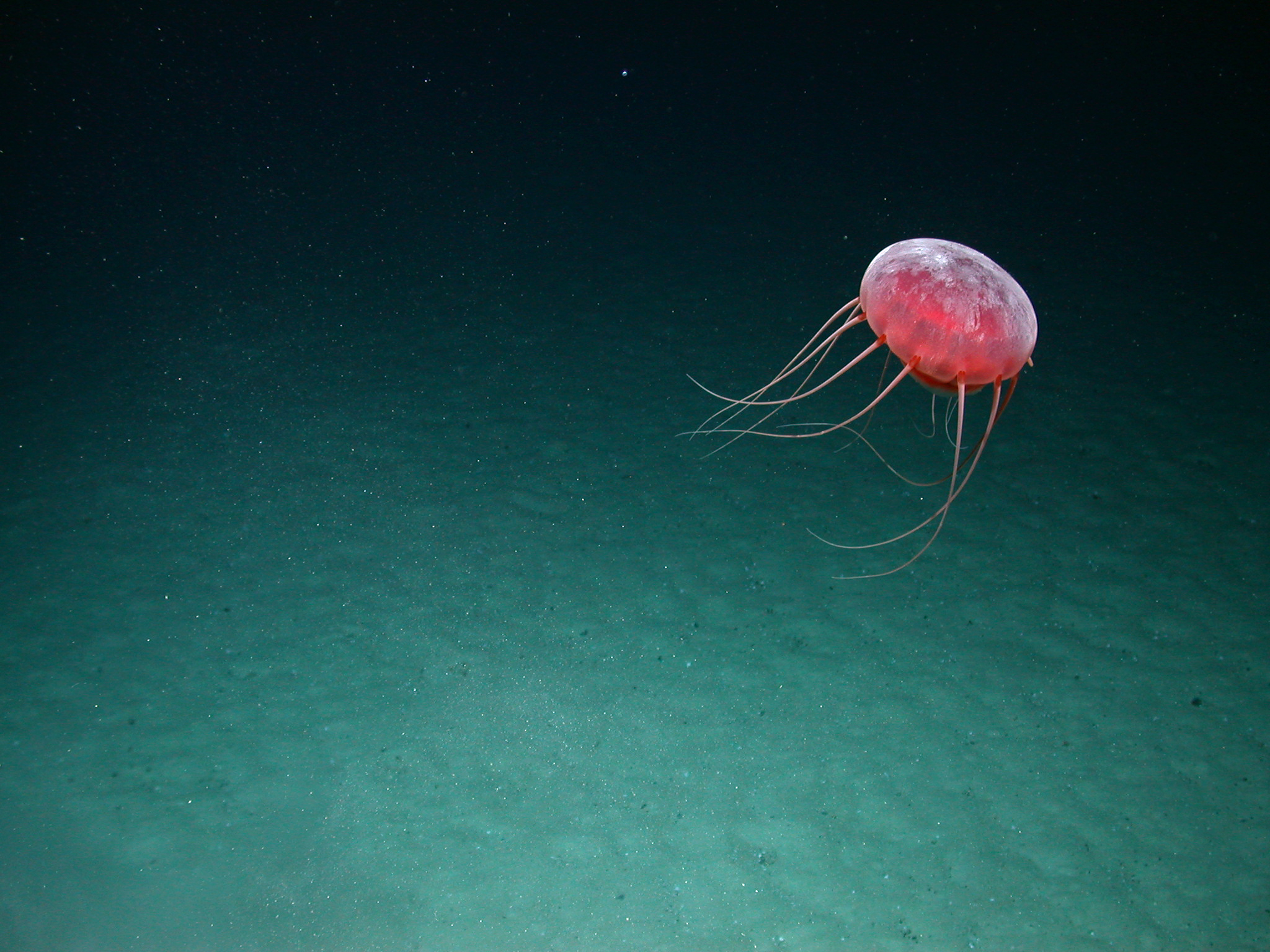
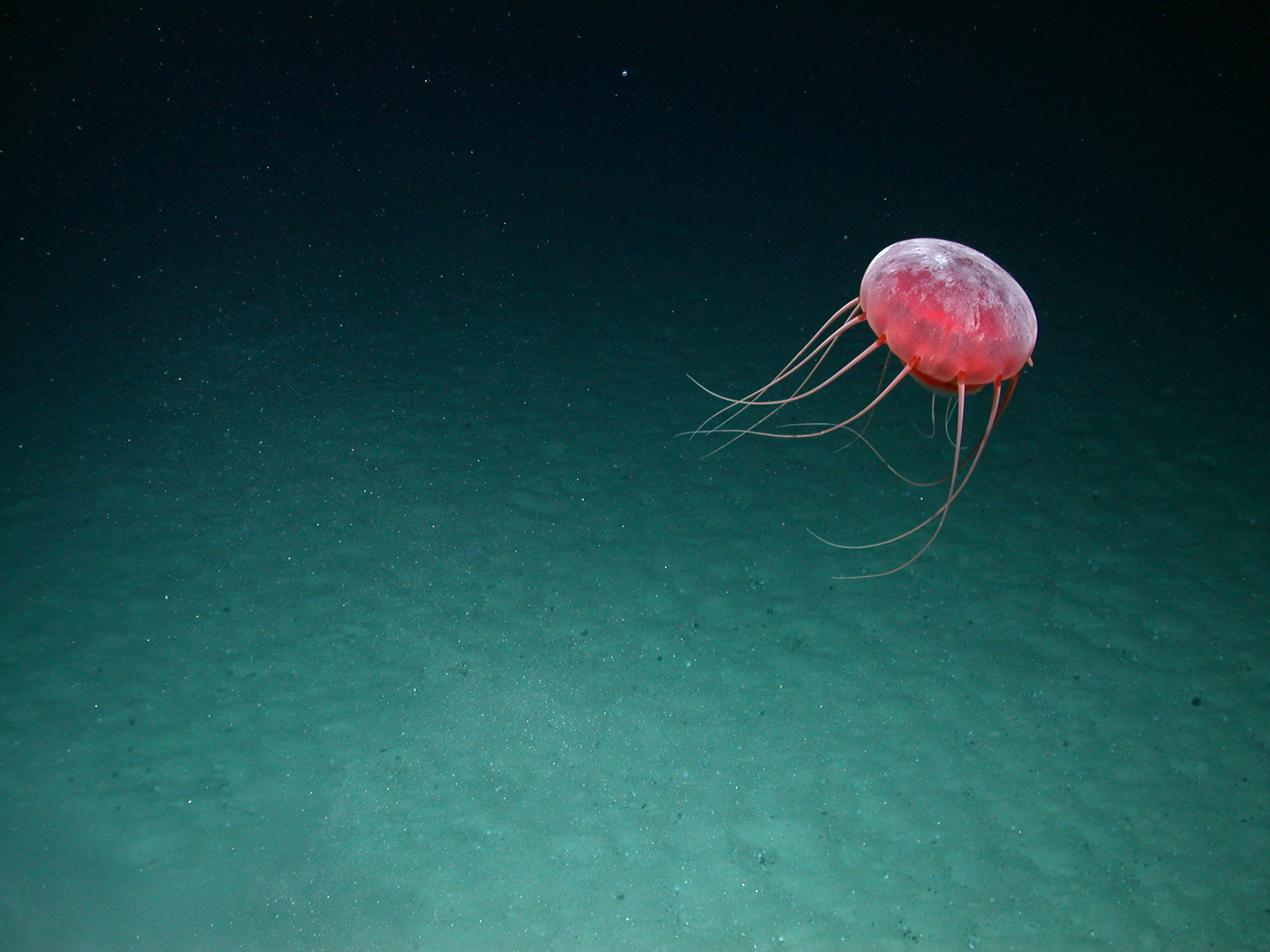
Sharkproject: Partner of National and International Coalitions against Deep-Sea Mining
Deep-Sea Mining - An Environmental Disaster in the Making
So, what is this ominous sounding deep-sea mining? Pretty much what it sounds like: the mining of mineral resources in the depths of the ocean. This new threat has potentially disastrous effects, which are - thanks to a lack of scientific knowledge about the deep-sea environment - still largely speculative. Unfortunately, even the most optimistic predictions cause great concern.
To prevent this environmental disaster, Sharkproject has joined national and international working groups to raise awareness and - most importantly - exert political pressure to influence the relevant legislation before it is too late. Sharkproject is engaged in shark protection and conservation measures worldwide. Many species we advocate for are virtually unknown to science, particularly in the deep sea, where the extreme environment and vast ocean depths hamper research efforts.
Take for example the elusive but charismatic megamouth shark (Megachasma pelagios), the ominous yet fascinating goblin shark (Mitsukurina owstoni), or others, including the bluntnose sixgill shark (Hexanchus griseus) and the enigmatic frilled sharks (Chlamydoselachus spp). And those are just the ones that we do know about. Imagine what else awaits us in the ocean depths. Deep-sea mining is not just a threat to these shark species but to the entire marine environment. Although the deep sea covers most of our planet's habitable zone, we know remarkably little about this fascinating ecosystem.
Light is largely absent in this marine region, which ranges - depending on definition - from 200m or 800m below the surfaces to the deepest points of our oceans. Respectively, that covers 54% to 88% of the earth's surface. Yet, only a minuscule portion has been explored and only a fraction of the biodiversity has been recorded. We do not know for certain how the ecosystem functions, which role deep-sea resources play for other parts of the planet, and how changes to the environment will impact global food webs. We do know that this is a highly fragile environment with many unique lifeforms still waiting to be discovered.
It is certainly a fair question to ask why we would expand our already considerable mining effort to this hardly explored and difficult-to-access region. The answer is - in short - driven by the world's ever-growing hunger for raw materials. Demand for materials needed in the production of batteries for electric cars or smartphones is to be met by mining at depths of several thousand meters:
- Polymetallic nodules contain mainly manganese and iron but also high concentrations of nickel, copper, cobalt, and rare earth elements, including yttrium and zirconium
- Hydrothermal sulfide ores
- Cobalt-rich iron-manganese crusts, with high concentrations of cobalt, nickel, copper, and other rare metals such as tellurium, platinum, zirconium
We have known about these mineral resources at the bottom of the oceans since the 1970s. Since then, technologies have been developed to mine these raw materials and make them usable for various industries. Although the actual mining is still a future horror scenario, many licenses and around 30 contracts - which cover an area of 2,000,000 km2 - have already been approved. To put this in relation, the total area of land mining "only" covers about 57,000 - 100,000 km2.
All of this is happening under the eyes of the International Seabed Authority (ISA), whose mandate is to protect the oceans from threats and further destruction. When issuing the licenses, little consideration was given to the fact that mining is by necessity a destructive process, that there is still a significant lack of knowledge about the deep sea, and that any detrimental effects cannot be accurately predicted.
Worryingly, the expected direct and indirect consequences are as diverse as they are dramatic:
- Large-scale destruction of the seafloor
- Mining in the vicinity of hydrothermal vents will destroy habitats and decimate the species living there
- Massive and wide-ranging underwater noise pollution
- Powerful vibrations affecting the physical stability of geological structures
- Light pollution from the machinery and underwater drilling platforms
- Whirling up clouds of sediment causes potentially deadly issues for deep-sea filter and suspension feeders
And that is just an excerpt of the lengthy list of anticipated problems. Regardless of the potential destruction, interest groups are pushing for the start of deep-sea mining, possibly as early as 2023.
Further criticisms of the proposed plans come from human rights advocates. Most mining is to take place in areas where coastal inhabitants depend heavily on the marine resources. The expected ecosystem-wide effects will severely threaten the livelihood of many people in these areas. Unsurprisingly, the extracted raw materials primarily benefit the richer, industrially strong nations, further increasing social imbalance.
Many NGOs worldwide are loudly criticizing the actions of the mining proponents and the ISA. Thankfully, some nations are waking up to the potential environmental disaster and joining our call for action!
With what is at stake and the unprecedented risks associated with deep-sea mining, a strong and united front is needed to protect the oceans, marine food webs and coastal inhabitants worldwide. Calls for a moratorium or - hopefully - a complete ban are growing louder. Many well-known companies have already joined the movement. Among them are BMW, Samsung and Google: https://www.noseabedmining.org
We will keep you updated about any news, related events, successes and actions here
- stop all projects and political initiatives for the extraction of mineral resources in the deep sea.
- Implement the absolute reduction of primary raw material consumption in Germany and drive it forward at EU level. By redirecting economic policy priorities toward a circular economy, ambitious reuse targets, improved recycling and product design focused on durability, repairability and recyclability, the raw materials of deep-sea mining will not be needed.
To achieve this, we call on the government on a short-term basis to,
- promote and expand scientific research of the deep sea independent of commercial exploitation interests. Comprehensive basic research is necessary for effective marine protection on the seafloor. The coupling of marine research and deep-sea mining interests contradicts the principle of independence.
- immediately end the economic extraction policy in the area of deep-sea mining.
- to reject the adoption of mining regulations.
- not to grant any applications for mining.
- initiate a review and reform of the ISA.
- publish transparently the research results obtained under its license and independent research with the goal of protecting deep-sea ecosystems.
- advocate in the EU that investments and financial services related to deep-sea mining are not classified as sustainable.
- advocate at the European level to ensure that no funding programs for deep-sea mining in the Pacific region. Civil society organizations in the Pacific, as well as the affected populations, reject deep-sea mining with all its imponderable risks as irresponsible. The populations of the Pacific island states must be adequately involved in decisions on the use of their resources and have the right to say “no”.
- advocate more strongly than in the past for the designation of marine protected areas with effective management strategies and no-take zones based on transparent and participatory procedures. Furthermore, the German government should advocate for the successful conclusion of negotiations for a legally binding UN agreement on the protection of biodiversity in marine areas beyond national jurisdiction (BBNJ Agreement). This would in particular allow the establishment of effective marine protected areas.
- adopt a ban on the use or import of raw materials from the deep sea.
- anchor binding human rights, environmental and climate-related due diligence obligations for companies along the entire value chain at national, European and international level. In doing so, access to justice and compensation for those affected will be ensured. In accordance with the precautionary principle, public funding of deep-sea mining projects as a high-risk technology must be dispensed with, and deep-sea mining must be excluded from foreign trade promotion.
Partner / Coalitions:
- Deep Sea Mining Working Group
- Deep Sea Conservation Coalition
View for more in-depth information and project backgrounds:
Map of known raw material deposits and areas already licensed for mining:
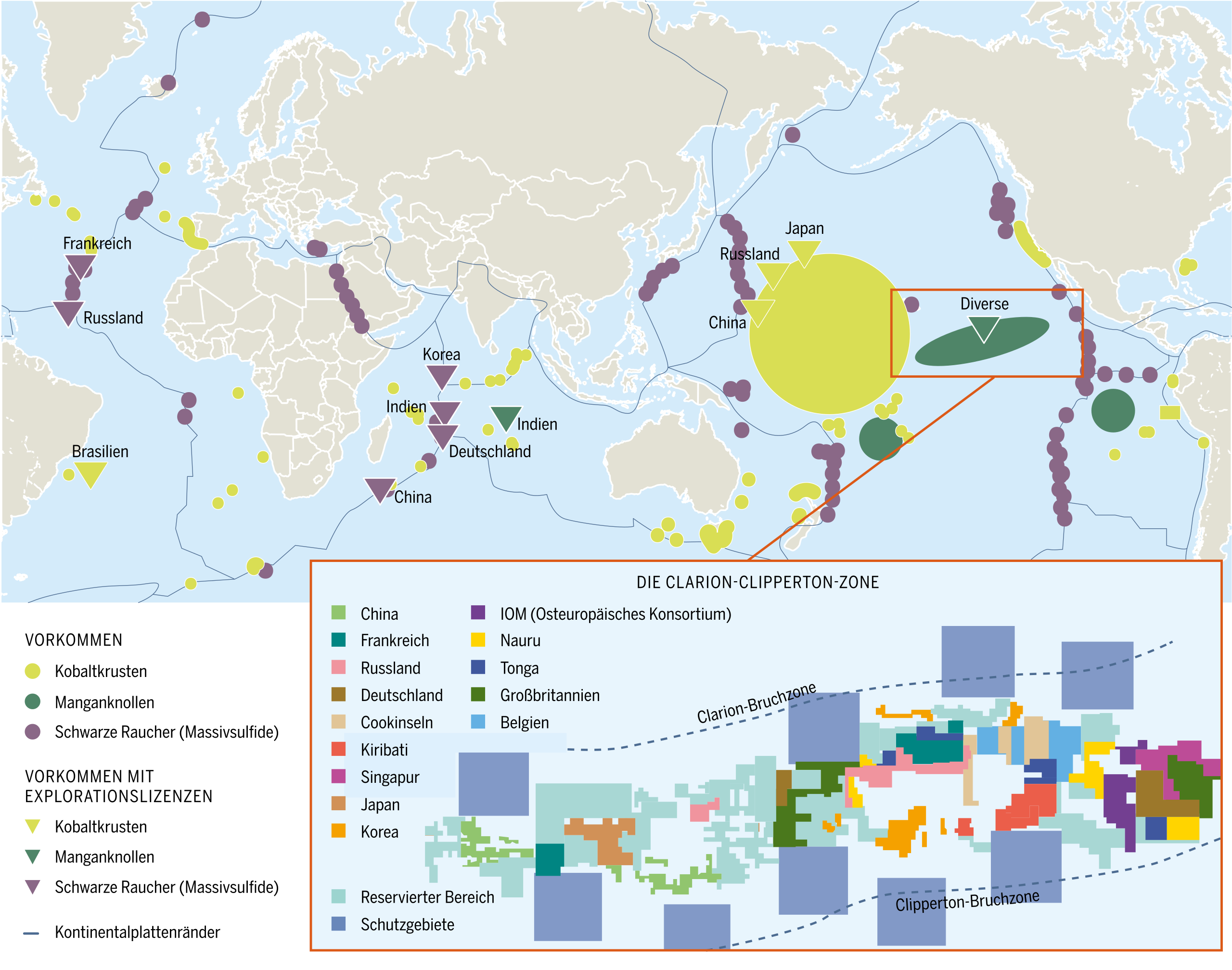
© Meeresatlas 2017
Publication: The largest mining project in human history - Arguments against deep sea mining

© Marie-Luise Abshagen
Abstract:
The deep sea is a unique habitat with enormous biodiversity. Despite this, states are currently negotiating rules for mining mineral resources from the deep sea bed. Deep-sea mining will inevitably lead to species extinction and an additional burden on the already highly threatened oceans. Instead of more mining, we need a raw materials turnaround and strong rules to protect the oceans and all those who live from and with the sea.
This publication lists 13 arguments against deep-sea mining and presents alternatives for a raw materials turnaround.
Author: Marie-Lusie Abshagen
Co-author: Hannah Pilgrim
Publisher: Forum Umwelt und Entwicklung, PowerShift, Brot für die Welt, Fair Oceans, Misereor, Ozeanien Dialog, Sharkproject
Partner campaign "Blue Peril
BLUE PERIL is the first science-based visual study of the impacts of deep-sea mining in the Pacific Ocean, which was conducted independently of industry and the International Seabed Authority (ISA).
Using Tonga and The Metals Company's proposed mining as an example, it was possible for the first time to use simulations to illustrate the impact and spread of contaminated sediment clouds.
The results are extremely alarming. It would only take three months for the waste discharged by The Metals Company in its license area in Tonga to reach Hawaiian waters and the northern islands of Kiribati and the United States.
More info about the campaign and the topic can be found here: https://dsm-campaign.org/blue-peril/
Project history
2021 – Sharkproject joins Deep Sea Coaltion
2022 - Joint engagement with partners at UNOC 2022 in Lisbon
2022 - two joint press releases in the context of UNOC 2022
November 2022 - Publication published: "The largest mining project in human history - Arguments against deep sea mining"
